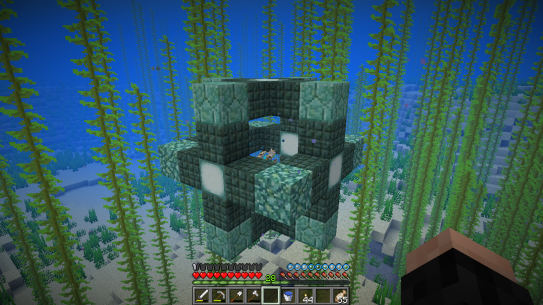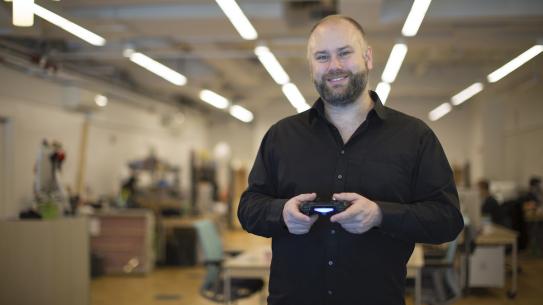
The Professor:
The Story:
“Games are great models of the real world,” Associate Professor of Computer Science and Engineering Julian Togelius says. “When you sit down to play or design any game, you’re testing your own intelligence — planning, thinking spatially, making predictions, moving, assessing yourselves and your performance — and I believe games, in particular video games, are perfect test-beds for artificial intelligence as well.”
Togelius — the author of the 2019 book Playing Smart: On Games, Intelligence, and Artificial Intelligence, a layperson-friendly volume that explores the connections between games and intelligence to offer a new vision of future games and game design — recently received a spate of media attention for his discovery that the fingerprint authentication systems used on many mobile devices were exceedingly vulnerable to hacking.
Working with doctoral student Phillip Bontrager, Togelius used AI to generate synthetic “master” fingerprints that could theoretically fool the biometric authentication systems of as many as one in five users. Their research demonstrates the need for strong multi-factor authentication, but it has applications in fields well beyond security since the Latent Variable Evolution method they developed to generate the fingerprints can also be used to make designs in other industries, including game development. (Latent Variable Evolution involves training generative adversarial networks, deep neural architectures comprised of two entities pitted against each other, and then using methods inspired by Darwinian evolution to search for new content.)
While busy conducting research, authoring books and papers, and teaching, Togelius also finds time for entrepreneurial activity: he is a principal at two AI-focused startups, Modl.ai, creators of bots, procedural content generation systems, and player-insight technology that allow game developers to rapidly design and test their ideas, and OriGenAI, whose platform predicts and optimizes the complex processes crucial to the world’s energy industry in order to increase efficiency and lower costs. (OriGenAI, a tenant company in NYU Tandon’s Data Future Lab, uses deep learning methods originally developed for video games to predict the outcome of complex processes, and that information allows refineries, wind farms, and other energy producers to better foresee precise output and devise optimal solutions for unforeseen situations.)
Fun and challenging games, a more energy-efficient world: Julian Togelius is proving the wide-ranging possibilities of AI.



